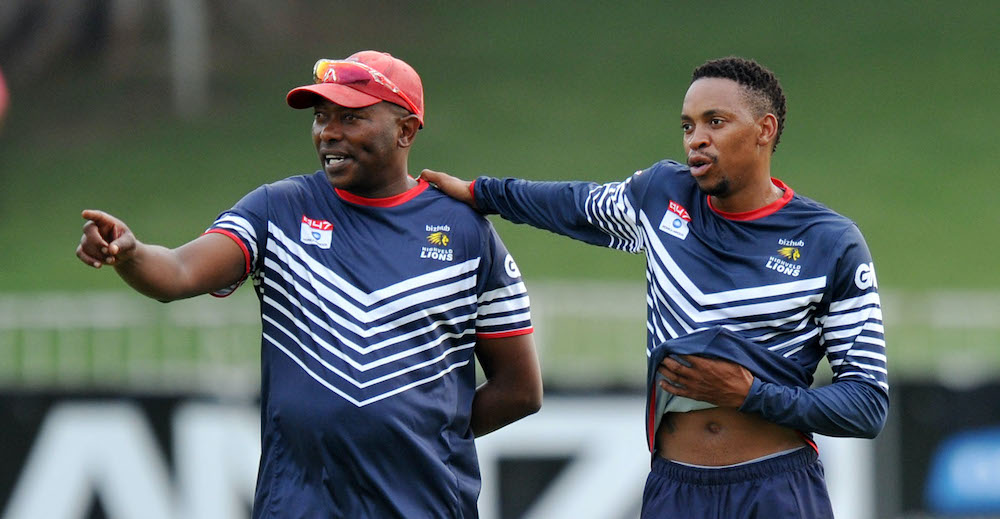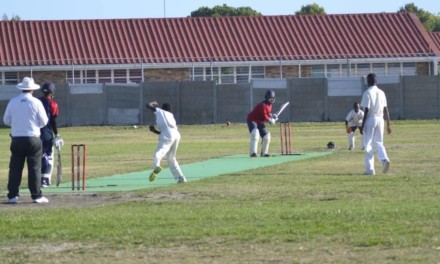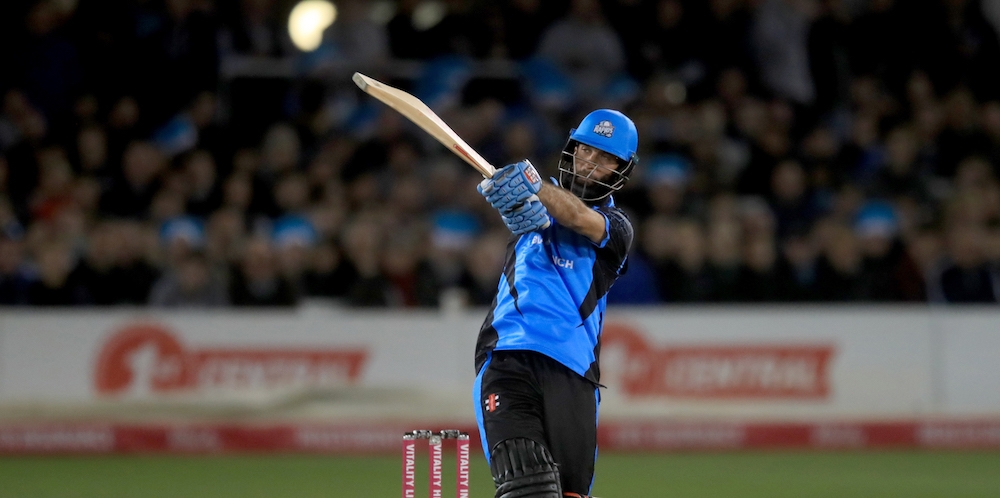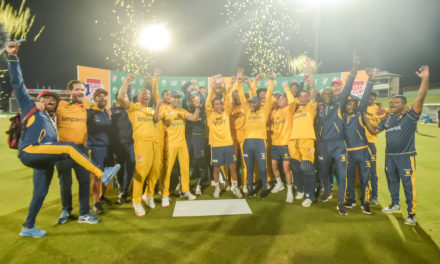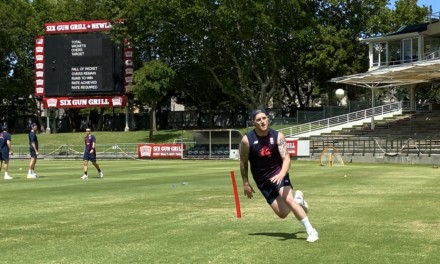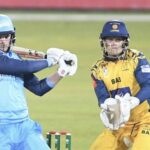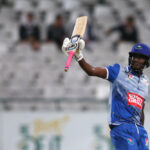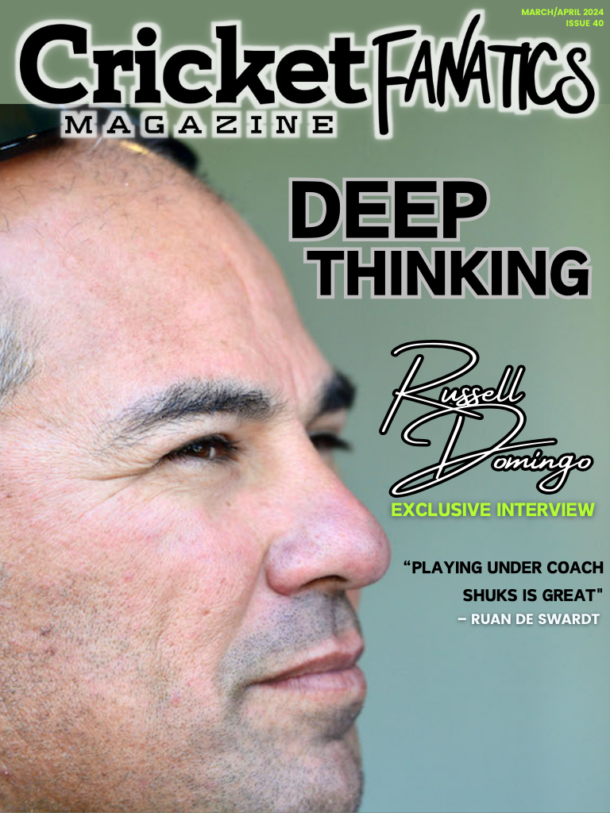As the world is shocked by the racist events in America, Geoffrey Toyana and Mfuneko Ngam remind South Africa that we are no different and that it’s time to right our wrongs, writes Ongama Gcwabe.
The title says it all. As I write this story, which can mark an end to my premature journalism career, I contemplate whether I should even go ahead with it.
I fear that the system will spit me out as quickly as it swallowed me in, eleven months ago. But is it possible for a young black man not to talk or write black?
Twenty six years into a rainbow nation, cricket has evolved, has it not? What all of us cannot deny is the great work Cricket South Africa has done over the years to create a level field. But has it been enough? What is ‘enough’?
One black african has a Test century behind his name. Twenty-plus years of giving opportunities has amounted to one Test century. What does that tell us?
“The main challenge that we have in every township in South Africa is something that breaks me,” Geoffrey Toyana told Cricket Fanatics Magazine exclusively.
“I come from Soweto. It’s quite sad as we speak that the Soweto Cricket Oval has not improved since I last played. I mean, I was involved in Soweto Cricket in late 90s and early 2000s.
“For me to see that there’s no change and there’s no improvement in that facility and other facilities as well all over South Africa.
“If you go to Den Qeqe[Stadium], in PE, those fields have not improved. That’s a huge challenge that we always talk about but there’s no action.”
Has cricket become inclusive? I’m from Motherwell and I can assure you that apart from the new nets the Motherwell Cricket Club was sponsored with, there’s no improvement whatsoever.
The stands are in bad shape, the club still struggles to this day. Same applies to the United Brother’s Cricket Club which is based at Dan Qeqe Stadium.
“I know CSA has Hubs at the moment to try to close gaps but I don’t think that’s how you need to close gaps,” said Toyana.
“It will be a shock for me to see a black african kid coming from the township, without any private education, go play franchise cricket.
“If you look at all the Proteas black african cricketers, there’s not even one of them who finished their schooling in the township. Fact!
“It’s a topic I feel sad about sometimes because it’s where I come from and for it to not have any improvement to this day its really something that’s disappointing,” he added.
Yes CSA is not a social services agency, but what’s the point of trying to rectify centuries of social injustice if you’re not going to go as far as addressing the social injustices.
“These kids are being introduced to drugs at a very young age because of a lack of sporting facilities that would take a lot of time away from the streets,” said Toyana.
Do all coaches understand this? Are they taught about this? Or are they just given a piece of paper telling them they need to put in three black Africans per game without any explanation?
Toyana tells a story which really touched me because of how common it is in the black community and is often disregarded in the professional scene.
“I still remember as a young coach when I was still playing for Gauteng, where I was coaching at a school – there was this kid who was always late. And he was very talented, he was my best player but was always late. I was asking myself – ‘why is this kid always late but all the other kids are there?’,” he said.
“Then one day I decided to follow this kid after school and see why is this guy late. He didn’t see me obviously. So I kept following him up until I got to his place to see his house only to realize that before he comes to training he basically has to cook for his mom first and his mom was HIV-positive. So, he has to do all those things before he comes to training which is tough.
“We don’t understand our own people. Some white coach won’t understand that for a black kid to go to the Wanderers for example, he has to take three taxis to get there. And taxis are a challenge as it is, because there’s times where you have to wait until the taxi is full.
“Some white coaches would go – ‘this kid has an attitude, he’s always late.’ They don’t understand the player and where the player comes from. Up until we address those skills, that’s when we’re going to head in the right direction. But we’ve been talking about this for the last 20 plus years and it seems like there are no answers.”
At this point, you might be thinking – ‘No, this is only Geoff’s opinion.’ Right?
Well, you’re wrong. Mfuneko Ngam has his say on the matter as well,
“It’s not easy because people don’t understand us. As soon as you start undermining a person that’s when you lose that player. But when you show interest and give your time that’s when they start to trust you,” said Ngam exclusively to Cricket Fanatics Magazine..
Some South Africans say – ‘Oh this thing of being black again. Are we really going to have this conversation yet again?’
Well, things haven’t changed. Why stop addressing these challenges when we haven’t solved them?
“Transformation for me is a change of mindset. Up until we get away from this thing when we select teams we start with black Africans first. Some coaches go – ‘Okay, one-two-three-four then our quotas are sorted.’ For me that’s a wrong way to go about it,” said Toyana.
“It is wrong to pick black players first just to fulfil your quotas. I was head coach of the Lions for eight years. For me, the way I selected my Lions team was that I select the best players available.
“You can’t have a case of black people competing with each other where one is a batter and one is a bowler. A batsman must compete with a batsman. A batsman must bat in the top six. You can’t have cases of batters batting at 10 or you pick a bowler and he bowls only one over.
“There’s this perception that if you play black africans then your team is going to be weak. For me that is a stupid perception.
“I’ve won trophies for the Lions with six blacks in a team. You can count your Bavumas, your Tsotsobes, Phangiso, Tsolekile and your Kagisos of this world. Everything bad starts when you have that perception as a coach,” he added.
The likes of Mbulelo Budaza, Gregory Mahlokwana, Kabelo Sekhukhune and Kerwin Mungroo all came from the Fort Hare University Cricket Academy which was run by Ngam for a long time.
I asked him what he thinks he did well while coaching those players of colour? I mean, all of them are black and are at Franchise or Semi-pro level.
“For me, it was all about sitting them down and asking them what they want to achieve. From there you tell them what you’re expecting from them,” he answered.
“Back in the day, guys were not trusted in those positions, especially black Africans. For me, it’s more about trust more than anything else. As soon as guys get to the franchise setup they also feel they’re there because they’re black.
“Some coaches don’t believe in them but the system wants them so they’ll just be there. Sometimes they don’t bat, sometimes they don’t bowl.
“Trust is a big thing. I think that’s what I’ve done well. That’s why I’ve managed to get those guys to move forward with their careers,” he concluded.
As the whole world is being reminded of many social injustices that the black man goes through on a daily basis, let’s not forget what is happening in our cricket.
Let the #JusticeForFloyd movement also inspire us to right our wrongs as a cricketing country.
Photo: Muzi Ntombela/BackpagePix

